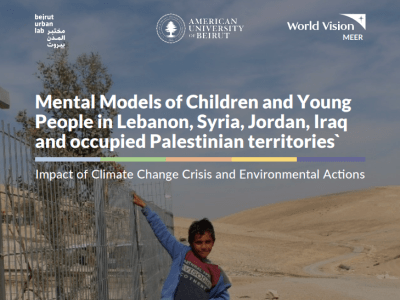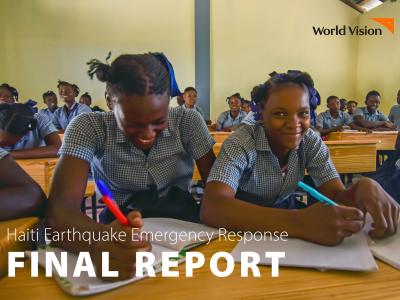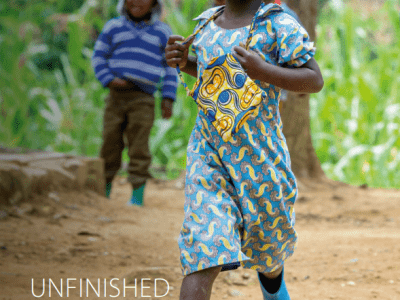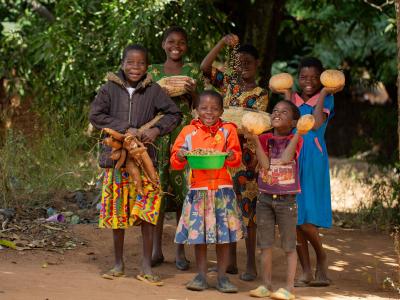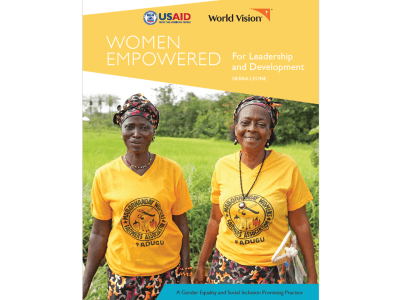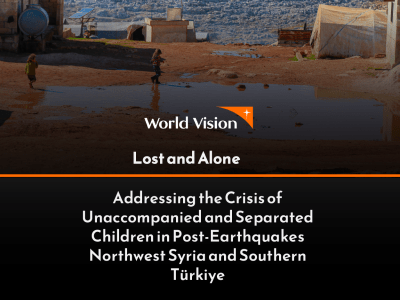article / October 30, 2024
Partnership brings safe water and health to Kapara Village
Yanauo shares how traditional bamboo water collection evolved into using plastic containers as their village lacked a safe water source, causing children to fall sick. World Vision's Markham Wash project introduced toilets and handwashing, leading to improved health. With a new gravity-fed water system, families now enjoy clean, accessible water.
publication / October 11, 2024
Mental Models of Children and Young People in Lebanon, Syria, Jordan, Iraq and Occupied Palestinian Territories
Impact of climate change crisis and environmental actions
publication / September 10, 2024
Haiti Earthquake Emergency Response Final Report
World Vision Haiti's earthquake response provided WASH, food, shelter, health, and child protection support to over 155,000 vulnerable individuals.
publication / September 9, 2024
Unfinished Business: The progress in policies to end violence against children
Each year, one billion children suffer from violence, losing their innocence and bearing lifelong scars. Despite government promises to end this violence, progress is inconsistent, with some areas regressing. A new report highlights the current state of policy commitments in 21 countries, revealing that no country has done enough to end violence against children by 2030. While some countries have outlawed violence, enforcement is lacking, and loopholes remain. West Africa, in particular, shows minimal progress and high rates of child marriage and labor.
publication / October 11, 2021
Empowered Women Empowered Children
This research explores women empowerment and children well-being factors in Armenia and looks at how women’s socio-demographic factors and empowerment components are associated with children’s well-being.
publication / June 19, 2024
World Vision Malawi 2023 Annual Report
World Vision Malawi Impact Report (Oct 2022 - Sep 2023). Together, we've made a lasting difference in vulnerable lives, bringing hope & empowerment to thousands through transformational programs
publication / April 22, 2021
World Vision Syria Response's Situation Report (Q1 2021)
Within the first three months of 2021, World Vision Syria Response has reached 845,607 people including 433,555 children in Jordan, Syria and Turkey.
publication / January 25, 2024
Women Empowered for Leadership and Development
This document presents a promising practice on integrating Gender Equality and Social Inclusion (GESI) to empower women and advance their socio-economic and political leadership in Sierra Leone.
publication / August 8, 2024
Lost and Alone- Addressing the Crisis of Unaccompanied and Separated Children in Post-Earthquakes Northwest Syria and Southern Türkiye
This report presents the findings from a unique piece of research conducted by World Vision Syria Response in Northwest Syria (NWS) and Southern Türkiye. It is the first of its kind to specifically explore how the February 2023 earthquakes in the region have impacted unaccompanied and separated children (UASC) and who were separated from their families during the disasters. The study brings together the diverse perspectives and experiences of caregivers, community members and most importantly, Syrian UASC in some of the worst earthquakes-affected areas. The report underlines the critical role of community-based alternative care systems in caring for unaccompanied and separated children and emphasises the severe gaps in existing services for children without parental care. Finally, it calls for increased prioritisation of Syrian unaccompanied and separated children in both NWS and Southern Türkiye in the overall humanitarian response to the Syrian conflict.
